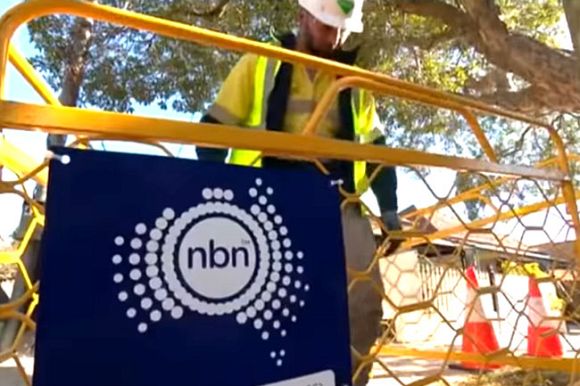In the ever-evolving landscape of technology, media and telecom (TMT), the Australian market stands poised for significant transformation in 2024.
With forecasts pointing towards substantial growth and innovation across various sectors, Deloitte's TMT Predictions 2024 offers a comprehensive outlook on the trends shaping Australia's digital future.
Broadband speeds levelling off
Deloitte predicts a stabilisation in the demand for higher fixed broadband bitrates globally, particularly in developed markets, with over 90% of commonly used online applications maintaining the same vendor-recommended bitrate.
Around 80% of these applications may not see an increase in advised bitrate between 2023 and 2025, indicating a shift towards optimising existing bandwidth rather than seeking higher speeds.
However, the report also states that Australia continues to trail behind the global median for download speeds, leading to continued demand for higher-tier broadband speed packages.
In line with global predictions, there is an increase in monthly volume downloaded. With NBN Co starting to offer higher broadband services at no extra costs, this potentially means that Australia will start following the global trend of stabilisation.
Popular online activities such as streaming video, video calling, audio streaming and gaming have modest bandwidth requirements, challenging assumptions of exponentially increasing demands. Niche cases requiring higher bitrates, such as extensive 4K video uploads, are rare, accounting for less than 1% of households.
Deloitte suggests fixed wireless access (FWA) technologies may have a solid runway until at least 2029 or 2030, questioning the belief that they are temporary solutions. The transition to potentially higher-speed technologies like 6G may not be imminent, as 5G meets most consumers' demands well into the late 2020s.
In smartphone technologies, Deloitte highlights the rise of satellite-to-mobile services, with approximately 200 million satellite-capable smartphones expected to be sold globally in 2024. However, widespread adoption faces economic, technical and regulatory challenges, including monetising access to emergency help.
Identity authentication emerges as a significant application for smartphones, with biometrics playing a key role. Deloitte predicts a substantial increase in smartphone-based authentication across various domains, driven by convenience and security advantages over traditional methods like passwords.
In Australia, over 30% of businesses are expected to transition to passwordless authentication by 2024, indicating a broader trend towards smartphone-centric security solutions.
Other predictions from the report:
Generative AI takes centre stage
One of the most notable forecasts is the rise of generative artificial intelligence (Gen AI) in Australia. With an estimated market size of $9 billion, Gen AI tools are expected to enhance productivity significantly, with employees leveraging these tools daily. Moreover, the demand for Gen AI chips is driving a semi-tailwind, indicating substantial growth potential in this sector.
Australian businesses are poised to invest heavily in AI capabilities, with an anticipated investment of $27.5 billion, marking a sevenfold increase. With specialised hardware and software solutions driving efficiencies, the focus on talent upskilling is paramount to harnessing the full potential of AI.
Sustainability initiatives in telecom
In the telecom sector, sustainability emerges as a key theme, with telco operators expected to reduce carbon emissions significantly. The adoption of energy-efficient 5G features and the transition to fibre-to-the-premises (FTTP) networks underscore a commitment to environmental responsibility.
Moreover, partnerships across the rare earth elements value chain signal a concerted effort towards sustainability and resource efficiency in the telecom industry.
Media, entertainment and sports trends
The media, entertainment and sports industries are poised for significant shifts in consumer behaviour and content consumption patterns. With an increasing focus on women's sports and a rise in streaming video services' profitability, content providers are adapting to evolving viewer preferences.
Additionally, the consumer audio market is expected to attract a growing number of listeners, while cross-IP collaborations between games and studios drive engagement and revenue growth.
Tech innovations and telecom advancements
Technological advancements continue to shape Australia's digital landscape, with developments such as direct-to-device satellite phone connectivity and multi-factor authentication gaining prominence. The push towards passwordless authentication and the adoption of low Earth orbit satellites (LEOs) for connectivity reflects a commitment to enhancing digital security and accessibility.
Cloud sovereignty and venture funding
Cloud sovereignty emerges as a focal point for the future, with specialised offerings catering to government agencies' needs for higher data sovereignty and security. Moreover, despite potential challenges in venture funding for tech startups, private equity investment in profitable tech companies is expected to surge, driven by favourable market conditions.
Paul Budde is an Independent Australia columnist and managing director of Paul Budde Consulting, an independent telecommunications research and consultancy organisation. You can follow Paul on Twitter @PaulBudde.
Related Articles
- Australia ranking low in broadband and cloud computing
- Telstra bids on Digicel amid South Pacific tech expansion
- Broadband development crucial for the South Pacific region
- PAUL BUDDE: Biden calls for $100 billion national broadband plan for America
- The Boy's Own Paper
 This work is licensed under a Creative Commons Attribution-NonCommercial-NoDerivs 3.0 Australia License
This work is licensed under a Creative Commons Attribution-NonCommercial-NoDerivs 3.0 Australia License
Support independent journalism Subscribe to IA.
















